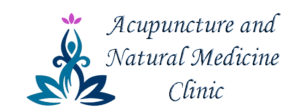Great Skin…Great Digestion: The Gut-Skin Connection
If you are looking for more radiant and glowing skin, you might be surprised to learn the answer lies in the condition of your digestive tract, rather than in direct skin care, creams and cleansers. The body’s digestive system has several functions, the most important of which is absorption of major nutrients like essential fatty acids, minerals, vitamins and amino acids from our foods, as well the ability to get rid of toxins through the elimination process.
The skin is your largest organ, and when the body is not purging enough toxins it serves as another elimination channel. Impurities can appear on the skin in the form of acne, eczema, rosacea, dull skin, puffiness, rashes, wrinkles, sallow complexion, and skin spots, if the digestive system is not working well.
The Causes of Poor Digestion
There are many potential culprits either at the root of poor digestion or that can potentially compromise your digestive health. For many of these issues, your skin will indicate their presence in the body with some outward signs—blemishes, dryness, discoloration, itchiness and more. Here is just a snapshot of the list of causes of poor digestion. If you are experiencing any of them, or for more information about treatment options, please consult your healthcare professional.
Food Sensitivities
Intolerance of gluten/grains, casein/cow milk, soy products, and eggs are the most commonly experienced and reported food sensitivities. Reactions to ingestion run the gamut from mild to severe, and can include bloating, indigestion, and cramping, and noticeable on the skin: rashes and hives.
The Bioset/NAET protocol is very well known to help eliminate food sensitivities by retraining the autonomic nervous and immune systems so they no longer react (or overreact) to the allergen(s). The practitioner would use specific acupressure points to restore the balance.
Reflux, GERD
GERD, short for Gastroesophageal reflux disease, occurs when the sphincter muscles at the lower end of your esophagus relaxes at the wrong time, allowing stomach acid to travel back up into your esophagus. The result is typically heartburn or acid indigestion, both of which cause pain and discomfort. Also known as “acid reflux,” when this condition occurs with high frequency, GERD can develop.
Along with changes in diet that restrict foods and beverages known to trigger reflux—chocolate, peppermint, fried/fatty foods, coffee, alcohol—the most common treatment for GERD is antacid medications, either over the counter or prescribed by physicians. Antacids work by suppressing the stomach cells that produce HCl, hydrochloric acid, as well as neutralizing the acid itself. For chronic and severe cases of GERD, outpatient and surgical procedures are available to offer relief.
More natural alternatives have also been proven effective. For centuries people have been using natural herbs like fennel, baked licorice, aloe and more as well as acupuncture on the stomach and other meridians to restore normal physiological function.
Lack of Digestive Enzymes and Gall Bladder Problems
Bloating and the feeling of fullness after meals could be related to the lack of certain digestive enzymes, e.g., lactose for dairy, amilase for carbohydrates, protease for protein, cellulase for fiber, and lipase for fat. Also insufficient bile production in the gall bladder can create fat indigestion. Supplying specific enzymes, herbal therapies, and acupuncture can fix the problem naturally.
Iron Deficiency and Malabsorption
When the gastric lining is compromised, it is difficult for the stomach to absorb Vitamin B12 and iron as a consequence. All of it leads to anemia due to the body’s impaired ability to absorb nutrients. This causes sallow skin complexion, brittle nails, hair loss and more. To bypass the digestive tract, sublingual sources of Vitamins B12, B9, and B6 can be recommended, among other important tests and therapies.
Irritable Bowel Syndrome (IBS)
IBS is a common often-chronic disorder that affects the large intestine. There are different causes, including food intolerances, lack of good gut bacteria (acidophillis and bifidus), candida overgrowth, and more. It is a complicated condition because it presents as a group of physical symptoms —bloating, stomach cramping after meals, constipation, gas, nausea, diarrhea, and a thick white coating on the tongue—but also has a psychological impact—anxiety, depression, chronic fatigue syndrome—due to the negative effects symptoms have on one’s quality of life.
Controlling diet is one of the keys to managing IBS. It is also imperative to take probiotics and certain amino acids, like L-Glutamine, to build up and protect the intestinal lining. Natural treatments like yoga and acupuncture have also shown to provide some relief since they are proven to reduce stress and anxiety, which can exacerbate IBS symptoms.
Candida Overgrowth
Candida is a type of yeast that naturally occurs in the intestinal tract. While we need to have some level of it in our digestive tract, we can run into problems when it begins to take over. There are a lot of symptoms of candida overgrowth, but the most common related to the digestive system include fullness, bloating even with small amounts of food, and a thick white tongue coating; psychological symptoms involve brain fogginess and neuro-emotional problems.
If the candida fungus is left unchecked in the digestive tract, it breaks down the walls of the intestinal lining, the stomach lining becomes permeable, which leads to creating antibodies and allergic reactions.
Everyday stresses, as well as high cortisol levels, weaken the immune system, so with time more toxins & bacteria develop, causing leaky gut syndrome. Antibodies are then created, which is called an autoimmune response. As a result food sensitivities and indigestion can occur; on your skin, eczema and rashes can appear, as well as Athlete’s foot and toenail fungus.
Neurotransmitters and Digestion
Most people are not aware that a major portion of their nervous system is located in the intestines, which is often called “a second brain”. More then 90 percent of serotonin and 5 percent of dopamine are created there; furthermore, our intestines regulate over 30 percent of other neurotransmitters found in the brain. As a result, they help to regulate mood, stress level, sleep and mental function.
Although it is relatively new to modern science, Traditional Chinese Medicine (TCM) recognized the brain-gut connection thousands of years ago. TCM practitioners will treat the stomach along with the small and large intestine meridians for both physical and mind-spirit improvement.
Steps To Help Digestion and Clear the Skin
Knowing the gut-skin connection exists is the first step to maintaining both good digestive health and good skin. There are a lot of healthy alternatives and natural health supplements and techniques to help you on the road to better digestive health and clearer skin, but they can summarized in two main categories: nutrition and lifestyle.
Nutrition Tips:
• Support your gut flora by taking daily probiotics. These good bacteria live in the digestive tract and help to digest and absorb nutrients, fight infection, and assist with waste removal and maintaining good immunity.
• Include in your diet prebiotic-insoluble fibers like inulin, artichokes, and other vegetable fibers—they help acidophilus and bifidus to multiply in the intestinal tract.
• Take fish oil supplements. Fish oil is anti-inflammatory and important for the gut, especially in cases of irritable bowel syndrome.
• Take supplements rich in fat-soluble vitamins like A, D, and E, which are also important for the gut and promote clear healthy skin.
• Eliminate from your diet dairy, gluten, wheat, soy and other foods you are sensitive to. Food sensitivities can be determined through Bioset or other testing, and treated naturally, including with the Bioset protocol.
• Avoid highly processed foods. They are deadly for the good bacteria and create bloating since the body does not recognize them as sources of nutrients.
• Take digestive enzymes to break down foods and increase absorption. Enzymes also help the body to renew damaged cells while decreasing constipation—a key for the glowing skin. There are a variety available, so consult with a health care practitioner to determine the right ones for you.
Lifestyle Tips:
• Avoid/manage stress. Stress is a major disruption for the digestion. Meditation, yoga, acupuncture, and Chi-Gong are all practices that help to release endorphins and promote the production of healthy neurotransmitters like serotonin and dopamine.
• Be aware of the side effects of antibiotics and antacid medications. Read warning labels, dosage instructions, and research any contraindications if you are taking medications with supplements. Try to address the causes, not the symptoms.
• Employ good eating habits at the table. Take your time to enjoy and chew your food well, which aids digestion.
• Move your body every day. Increasing heart rate helps circulation, activates the digestive process, and moves the lymph as a part of detoxification. Exercise also boosts mood and reduces stress, which helps keep several symptoms in check.
The bottom line: If you need to clear skin naturally, you need to start with the gut. Treat the causes rather than taking toxic prescription pills or using chemically-laden skin care products.



